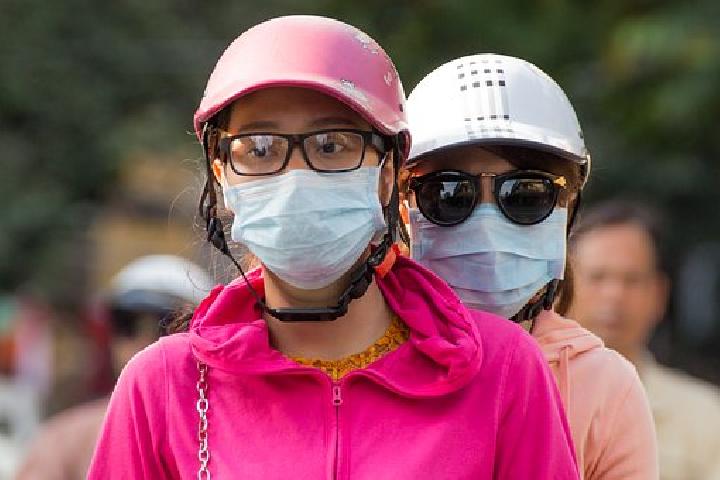The Fuss About Air Pollution in Jakarta
Translator
Editor
29 June 2022 12:22 WIB

By: Purwanto Setiadi | a freelance journalist and volunteer at Bike to Work Indonesia
In all honesty, Jakarta has been regularly included in the group of cities worldwide with the worst air pollution. Still and all, everytime one publishes a new data, like just recently done, it always invites some interest which oftentimes can be considered too “fervent”.
Due to the existence of Jakarta Governor Anies Baswedan, who is up to this point considered as the politician that successfully won a regional election by way of awful tactics, the latest news immediately were responded by politicians from his opposing parties. This, as a matter of fact, happened coincidentally with the picking up of coalition courtship ahead of the 2024 election. For instance, Gabriel Simanjuntak, member of Jakarta Regional People’s Representatives Council (DPRD) from the Indonesian Democratic Party of Struggle, who contended that Anies have been busier with the 2024 presidential candidacy issue rather than taking care of Jakarta air pollution. Or Justin Adrian, the Indonesian Solidarity Party’s politician, also a member of Jakarta DPRD, who called out Anies as too preoccupied with the rolling out of bicycle lanes.
In truth, the two criticisms are not proportional and misleading. Gilbert ignored the fact that in the issue of Jakarta air pollution there was a “citizen lawsuit” won by the Capital Coalition, and Anies, one of the defendants, chose to accept the court ruling; the other defendants, including President Joko Widodo, by contrast, decided to file an appeal. All of the defendants were considered as the most responsible parties in the effort to fight air pollution in Jakarta.
Justin’s criticism was not only turning a blind eye to things that actually have been and is being done by Anies in the transportation sector, one of the major sources of air pollution, but also illogical: that bicycle lanes are useless to combat air pollution. Whereas, it has been in the public knowledge that, in addition to the integration of transportation modes as well as improvement of sidewalks and the supporting facilities, the Jakarta government intentionally put bicycle lanes as part of its effort to fight air pollution problems. The result? Yes, it has yet to be seen. It is the aspects of this reality that should be assessed and criticized.
However, through unfair judgements, both politicians have given enough confirmation to a group of society that already have a deep-seated feeling of dislike to Anies—which were there and then echoing their animosities. And so, in many threads of social media posts, for example, this group acted as if they were just getting some fuel: tossing more expletives rather than asserting constructive opinions.
In the middle of the noises, there is one constant from time to time, that is the description of response “character” to the issue of Jakarta’s bad air quality. In this case, at least there are three categories: caricatural, fake, and pathetic. These categories might correspond to each other. The description applies bearing in mind that motorized vehicles use are consistently high even among those who, yes, complain and condemn.
Caricatural is a relatively generous description; it tends to see only the funny side. In this category, the response at hand is considered as an exaggerated way, which is as if it was representing concerns or worries of the situation, but this is not reflecting at all in the daily conducts. A trend of reduction in the use of private motorized vehicles, for example.
In other words, those who complain of the dire situation and condemn the way of tackling it don’t really understand the reality. They are just “asbun”, speak without forethought, so they said in the past.
That being the case, we can get into the second category: that those who complain and criticize actually express a fake stand, whether they realize it or not. They want better air quality but take no notice of a step they actually can do to help achieve such conditions, at least to some extent: reducing the use of private motorized vehicles. There are many reasons. But mostly are mere excuses.
The third category, whether one wants it or not, has to be accepted as a consequence of the previous two. Those who react in a caricatural way and fakely deserve to be given compassion. This is the case not because of, say, their social-cultural conditions, neither because of the already established preconception have made them like a frog under the coconut shell; they also viable to be given compassion since, at the end of the day, they like a frog in the pot filled with water that is slowly heated. So, later on, when the situation reaches its peak, they will not be able to save themselves.
Therefore, this suggestion applies to everyone: before complaining and criticizing things concerning air pollution, specifically in Jakarta, but actually also can be everywhere, look in the mirror first—ask whether you are still using private motorized vehicles, even for running errands or going to a mosque nearby, or not. Just make sure not to be too fervent.
*) DISCLAIMER
Articles published in the “Your Views & Stories” section of en.tempo.co website are personal opinions written by third parties, and cannot be related or attributed to en.tempo.co’s official stance.























